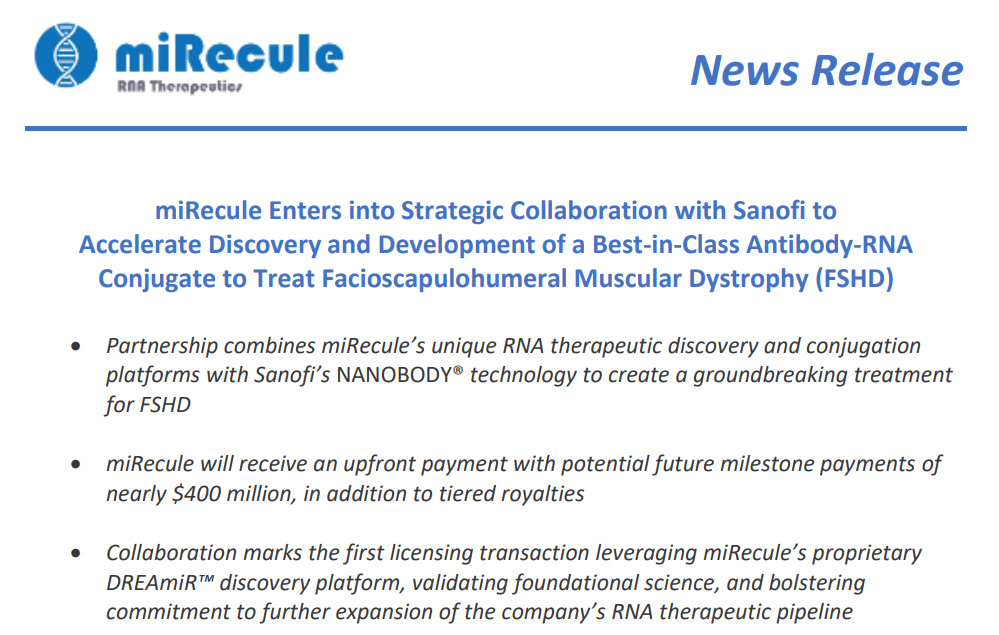On October 4, miRecule announced that it has entered into a strategic cooperation and exclusive license agreement with Sanofi to accelerate the development of “best-in-class” antibody-RNA conjugates (ARC) for the treatment of facio-scapulohumeral muscular dystrophy disease (FSHD). This collaboration marks the first time miRecule has leveraged its DREAmiR platform for a licensing transaction.
FSHD is the second most common type of muscular dystrophy, with more than 1 million patients worldwide, but there is currently no approved treatment. FSHD is caused by mutations in the DUX4 gene, which is highly expressed in 95% of FSHD patients. Disease-causing genetic mutations cause patients to experience life-long deterioration in muscle function and progressive disability. MC-DX4 can prevent the development of FSHD by knocking down the DUX4 gene in muscle tissue.
The collaboration will combine miReucule’s anti-DUX4 RNA therapy (discovered through the company’s proprietary DREAmiR platform) and Sanofi’s proprietary muscle-targeting nanobody technology, and leverage miReucule’s NAVIgGator conjugation technology and formulation chemistry to combine the two. Each molecule is linked to form an ARC, which selectively targets and inhibits diseased sites in muscle tissue. This ground-breaking approach will allow FSHD patients to resume normal aging without the effects of this progressive disease.
Under the agreement, miRecule will grant an exclusive worldwide license to Sanofi’s FSHD therapy, and Sanofi will be solely responsible for IND research and global development and commercialization activities. miRecule will receive upfront and near-term milestone payments that may total more than $30 million; additional development, regulatory, and commercial milestone payments total nearly $400 million. If approved, miRecule is also eligible to receive tiered royalties on net sales.









